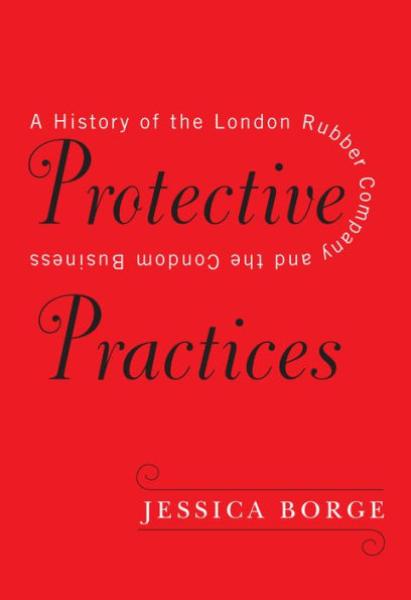Description
From humble beginnings wholesaling at a small tobacconist-hairdresser shop in 1915, the London Rubber Company rapidly became the UK's biggest postwar producer and exporter of disposable rubber condoms. A first-mover and innovator, the company's continuous product development and strong brands (including Durex) allowed it to dominate supply to the retail trade and family planning clinics, leading it to intercede in the burgeoning women's market. When oral contraceptives came along, however, the company was caught in a bind between defending condoms against the pill and claiming a segment of the new birth control market for itself. In this first major study on the company, Jessica Borge shows how, despite the unmentionable status of condoms that inhibited advertising in the early twentieth century, aggressive business practices were successfully deployed to protect the monopoly and squash competition. Through close, evidence-based examination of LRC's first fifty years, encompassing its most challenging decades, the 1950s and 1960s, as well as an overview of later years including the AIDS crisis, Borge argues that the story of the modern disposable condom in Britain is really the story of the London Rubber Company, the circumstances that befell it, the struggles that beset it, the causes that opposed it, and the opportunities it created for itself. LRC's historic intervention in and contribution to female contraceptive practices sits uneasily with existing narratives centred on women's control of reproduction, but the time has come, Borge argues, for the condom to find its way back to the centre of these debates. Protective Practices thereby re-examines a key transitional moment in social and cultural history through the lens of this unusual case study.
From humble beginnings wholesaling at a small tobacconist-hairdresser shop in 1915, the London Rubber Company rapidly became the UK's biggest postwar producer and exporter of disposable rubber condoms. Borge shows how aggressive business practices were successfully deployed to protect the monopoly and squash competition.
This deeply researched and engagingly written study of the London Rubber Company not only tells the fascinating story of a significant and dynamic business, it also shines fresh light on the changing sexual culture of twentieth-century Britain. This is highly recommended for anyone interested in the production, advertising, and retailing of that controversial and sought-after item: the condom. Adrian Bingham, University of Sheffield and author of Family Newspapers? Sex, Private Life, and the British Popular Press 1918-1978
From humble beginnings wholesaling at a small tobacconist-hairdresser shop in 1915, the London Rubber Company rapidly became the UK's biggest postwar producer and exporter of disposable rubber condoms. Borge shows how aggressive business practices were successfully deployed to protect the monopoly and squash competition.
This deeply researched and engagingly written study of the London Rubber Company not only tells the fascinating story of a significant and dynamic business, it also shines fresh light on the changing sexual culture of twentieth-century Britain. This is highly recommended for anyone interested in the production, advertising, and retailing of that controversial and sought-after item: the condom. Adrian Bingham, University of Sheffield and author of Family Newspapers? Sex, Private Life, and the British Popular Press 1918-1978
Last updated on
Product Details
- McGill-Queen's Unive Brand
- Sep 23, 2020 Pub Date:
- 0228003334 ISBN-10:
- 9780228003335 ISBN-13:
- 306 Pages
- 9.2 in * 6.7 in * 1.2 in Dimensions:
- 2 lb Weight:




